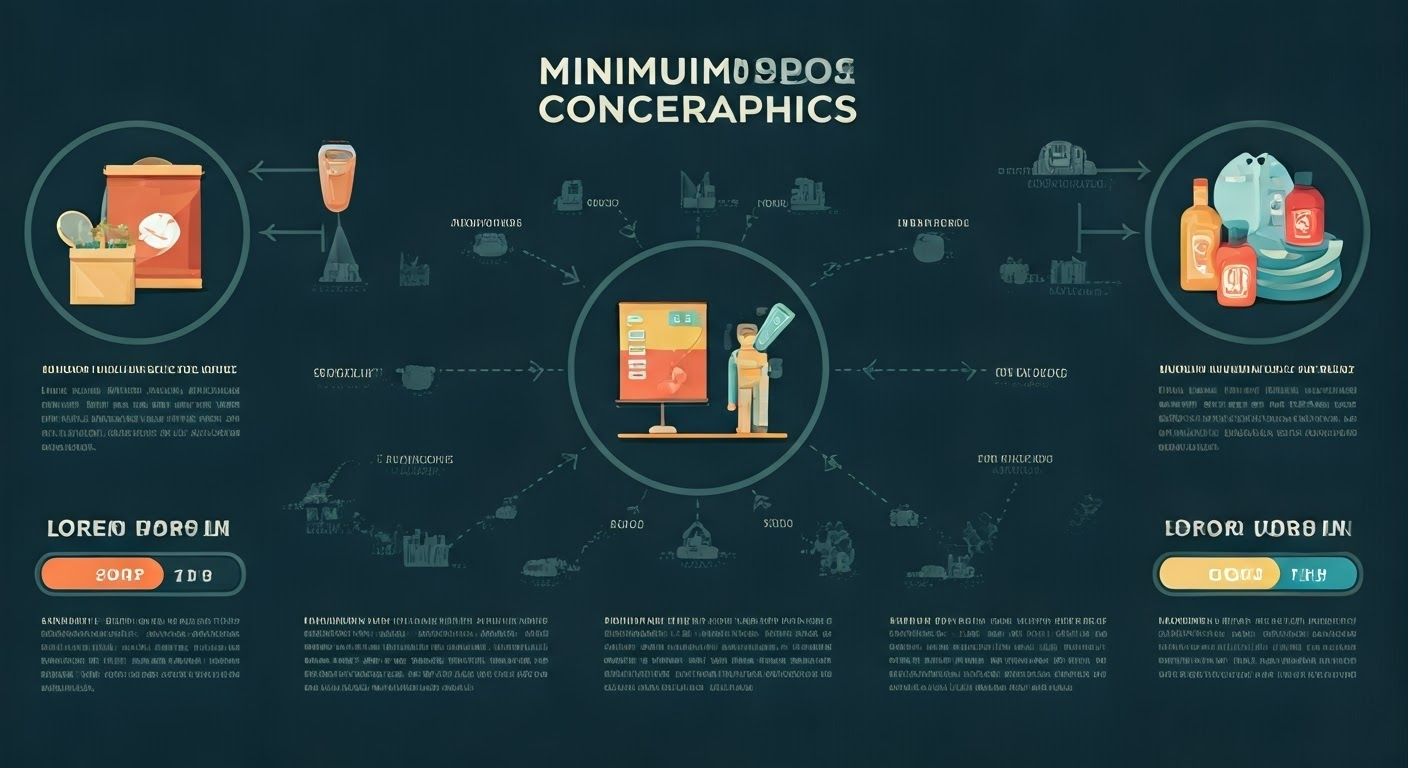Minimum Spend Meaning: What You Need to Know

Key Highlights
Definition & Overview: Minimum spend is the least amount of money you have to use at a place or event.
Application: People see this often at restaurants, bars, and with credit card reward deals.
Flexibility: The place you choose might let you order ahead or split what your group spends with early orders.
Benefits: Lets people enjoy high-end spaces without huge costs when they want to have events.
Drawbacks: You must watch your budget, or you could have to pay extra fees.
Planning Essentials: Know the rules and details before so everything goes well for everyone.
Introduction
Minimum spend requirements give a new way to look at events for people who plan them and the places that hold them. If you want to plan your next event at a nice place or use a credit card perk, knowing this idea can make it easier to set your budget. It helps hosts keep control of how much they spend and how many people they invite. This way, everyone gets something good. When you get how minimum spend models work, you can find cheaper ways to make good memories. Let’s see what you need to know about this pricing method that many people use now.
Exploring the Basics of Minimum Spend
 Minimum spend is the amount of money a place wants people to spend when they have events. You do not pay this as a fee before your event. The idea is to help the venue cover what it needs and to give good service.
Minimum spend is the amount of money a place wants people to spend when they have events. You do not pay this as a fee before your event. The idea is to help the venue cover what it needs and to give good service.
This idea can be used for both big parties and everyday meals. If you know the basics of minimum spend, it will help you pick the right place. It also works when you want to get rewards from your credit card. If you understand this, planning your events can be easier. It can help you have more fun, too.
Definition and General Overview
The words "minimum spend" mean the lowest amount of money people need to use at an event. You may see this at spots that do not ask for payment to book early. The bar, restaurant, or person in charge wants to get some money from what people buy.
If a venue has a minimum spend of £1,000 and you have 50 guests, each person has to spend £20 to reach that amount. If people don’t spend enough, the host has to cover what is missing. This way, the venue will not lose money.
Learning about minimum spend helps guests and venue managers work together. This is true if you buy snacks, cocktails, or book bigger things. It is important in places where guests help keep the business going. A custom way can let you get more from guest spending and meet the minimum spending needs.
Common Industries Utilizing Minimum Spend Models
Today, many businesses use minimum spend models. They do this to make money and give people a friendly experience. Restaurants and bars are at the front of this change. These places let people who have parties avoid booking fees if they spend a set amount on food and drinks.
Catering companies use this way too. A couple, when planning the wedding, can get good food service if they meet a set amount, based on how much guests eat and drink. People can also pick fixed menus for their event.
Also, the system is being used more to book spaces for office events and parties. People who want themed places or fun activities can get to their spending goal without having to stress about money. This way helps, as it keeps the prices open, and makes sure you get what you pay for.
How Minimum Spend Agreements Function
Minimum spend agreements help bring venues and their customers together. A venue will set a limit for how much needs to be spent. This amount depends on the number of guests, when the event is held, and what kind of event it is. People booking the venue agree to either choose their menu before the event or make sure what they spend reaches the set minimum.
These agreements help you plan big events like weddings, birthday parties, and large work get-togethers. They say the rules in a clear way to help places avoid losing money. At the same time, guests feel good because they know the costs and can enjoy the day without worry.
Typical Terms and Conditions
Every deal with a minimum spend comes with some rules that we have to stick to. The time frame of the event matters a lot. Venues charge different prices when things are busy compared to when it's slow. These rules should be clear in the contract. That way, there is no mix-up.
Another key thing to know is about paying some money before the event. Many places will ask for this. You may need to pay a part of the fee early. This happens a lot when food is part of the deal. It helps the venue plan on their end. You also get to know what you are paying for right from the start.
In the end, it is important that customers know about the penalties if they do not meet the minimum spending rule. If total spending is too low, hosts may have to pay extra money or face other charges. Good communication helps build trust and keeps things smooth for both sides.
Examples in Different Settings
Let me show you how minimum spend works by giving some real-life examples:
Setting | Scenario | Outcome |
|---|---|---|
Venue Hire | Minimum spend of £5,000 for a wedding | Guests meet target via catering |
Restaurant Dining | Minimum spend of £250 for a set menu | Successful event with custom dishes |
Corporate Event | Employees consuming £10,000 over a 6-hour event | Perfect venue and no extra costs |
These examples show why many places, like restaurants or bars, set a minimum spend. The minimum spend makes sure people buy enough food, drinks, or entertainment. This helps the business make money. It also keeps the host and their guests happy.
Benefits and Drawbacks of Minimum Spends
 Minimum spends can give good deals to hosts, but there are also some things to think about. The best part is that businesses may lose less money, and guests can use first-class venues. Paying for packages ahead of time makes the prices clear and helps people plan for costs.
Minimum spends can give good deals to hosts, but there are also some things to think about. The best part is that businesses may lose less money, and guests can use first-class venues. Paying for packages ahead of time makes the prices clear and helps people plan for costs.
On the downside, there can be penalties if you do not spend the required amount. There may also be hidden fees that can make it harder to plan. So, it is good to have clear talks and look at everything closely when planning events with a minimum spend.
Advantages for Businesses
Adopting a minimum spend policy can offer many benefits for a business. This practice helps to keep money coming in. It works well for high-cost services like hiring out a venue or when offering special menus.
A smart minimum spend rule can make customers stay. It helps turn first-time customers into people who come back. Using ways like credit card reservations can make things easier to understand when people pay.
Also, some places use minimum spends to get event planners who want to save money. This way, they cut down money risks. They keep prices low while still giving good service. That is why many businesses use this plan.
Considerations for Consumers
You should know a few things before you say yes to a minimum spend deal. Find out how much money you have to spend. Make a guest list to plan for your event. This will help you avoid any surprises.
For bigger groups or work events, you want to find new ways to get the most from your budget. Think about using themed packages or pre-orders; these can help you reach your money goal. If you can, ask about bring-your-own-drinks plans, as these may help you pay less at the start.
It is important to read the terms and conditions. Make sure you check the cancellation rules, time limits, and any penalties. This can help keep your money safe.
Conclusion
To sum up, knowing about minimum spend is important for both businesses and their customers. This rule helps companies earn more money and can change the way people buy things. If you learn about how minimum spend agreements work, you may find ways to use your money better and get some good rewards. A business can use minimum spend to set rules, and a shopper can use what they know to make better choices. If you want answers or help with how minimum spend works for you, just ask. You can start getting more out of your money right now.
Frequently Asked Questions
What does "minimum spend" mean in a financial context?
Minimum spend is the set amount you have to spend to meet certain rules. You may need to spend this for booking or to get special deals. It helps businesses earn money because it tells you the exact amount to spend for all benefits.
How is minimum spend applied in credit card rewards programs?
Credit cards have a rule about minimum spend to make people use them more. Cardholders must spend a set amount, like $2,000 in three months, to get bonuses. These rewards programs use this rule to get more customers to join and to make them spend more.
What are the implications of minimum spend requirements for consumers?
Minimum spend rules ask people to spend a set amount of money. If they do this, they can get rewards or get into places. But this can push people to spend more money. It is important to think about how these rules will affect your money to avoid extra charges or fees. This can help make things go well.
Are there any exceptions to the minimum spend rules in certain promotions?
Yes, there be some exceptions for this. Sometimes a deal can take away the rule for how much you need to spend. This may happen at special times or for a big discount. You should always read the rules and what’s listed by their places or the card company. This way, you know what you need to do.
How can businesses benefit from implementing a minimum spend policy?
Many businesses have rules on how much you need to spend. These rules help them keep making money and bring in clients who stay with them. The business can use its resources in a better way too. This way of working makes prices fair and also helps build trust with clients. It helps them make more money.
What are the common pitfalls associated with minimum spend thresholds?
People sometimes run into trouble, like bills they did not expect, mix ups with dates, or thinking guests will pay more than they do. When we know about these things, we can keep money plans right. This helps us stay away from errors in contracts.
How does minimum spend affect customer purchasing behavior?
The minimum spend rule changes how customers shop. It can make people decide what to buy and how much money to use. If a business gives rewards for spending more or buying often, it can make people want to shop more. People feel like they need to spend more money to get those rewards. This helps businesses get more money from these limits.
Can minimum spend be negotiated, and if so, how?
Yes, you can often talk about the minimum spend with venue managers. Tell them what you want. Offer them other choices. Ask if they can change some of the terms or services to fit you. A friendly talk helps you both work together and find a good way.
What Happens if You Don’t Meet Minimum Spend?
If you do not reach the minimum spend, you have to pay the rest yourself. You may get more fees or charges that make your cost higher. Always read all agreements closely to spot anything that may happen before you say yes to them.
What are the best minimum spend venues?
Popular places to visit are SAMA Bankside in London, The Fitzgerald in Manchester, and The Distillery in Birmingham. These spots feel a bit different from each other. They let people have private dinners, business events, and fun parties. So, they work well for all sorts of plans.
What does minimum spend mean at a restaurant?
At restaurants, minimum spend is the smallest amount you have to pay when you eat there. The it helps the place pay for its costs. It also lets people have both food and drinks. This is a good way to help make planning events smoother.
What is minimum spend on card payment?
Minimum spend on card payment means rules that tell you to spend a set amount when you buy something. The rules be there to help with payment processing costs and show you the real price even for small buys. If you know these terms, then you can stay away from confusion when you pay for things.
Comments
Post a Comment